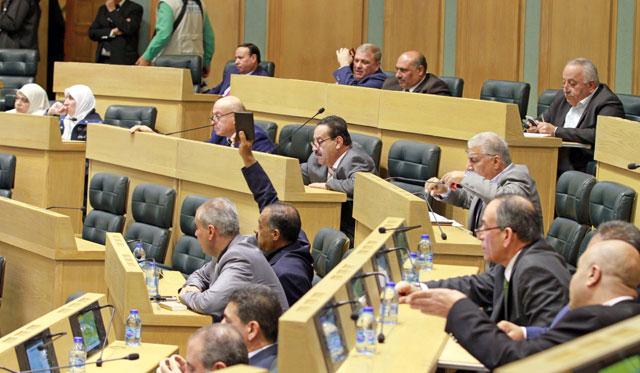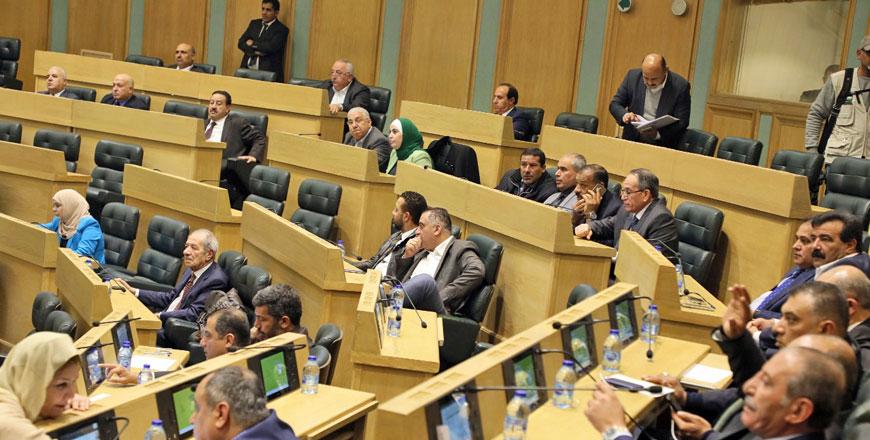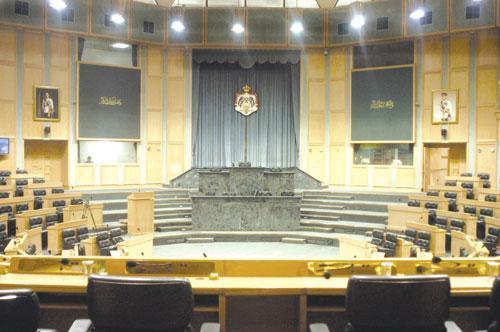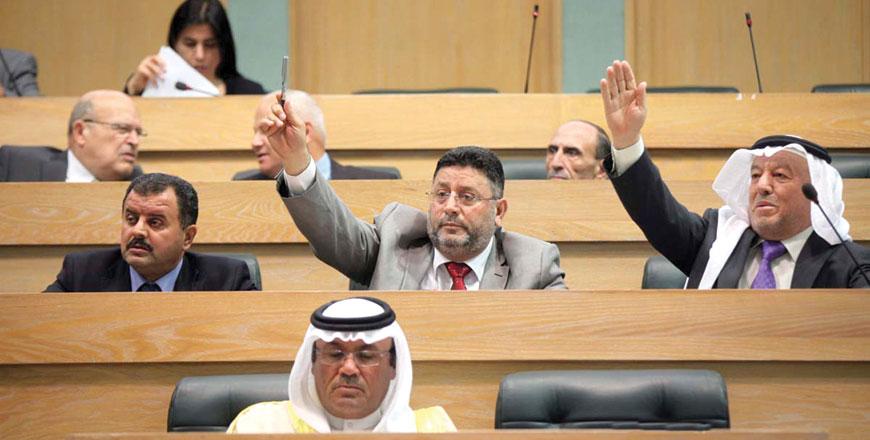You are here
MPs approve Senate amendments to Labour Law, endorse new internal by-law
By JT - Apr 08,2019 - Last updated at Apr 08,2019

MPs attend a session on Sunday where they voted to endorse an internal by-law and approved amendments to the Labour Law referred from the Senate (Petra photo)
AMMAN — The Lower House on Sunday endorsed its internal by-law and approved amendments to the Labour Law as referred by the Senate.
The new internal by-law stipulates that a bloc, a coalition or a minimum of 15 per cent of the House can table any public issue for debate, instead of 10 MPs in the previous system.
Furthermore, under the new by-law, any question can now be filed as an inquiry, so long as it is done during the same discussion session.
Any members, comprising of at least 15 per cent of the House, can now present a memorandum, to list on the agenda or refer to the permanent committee, the Jordan News Agency, Petra, reported.
The phrase “any information related to public affairs” was also added to the disclosure requirements of a parliamentary question, banning the repetition of questions asked by other MPs.
A deadline of 10 days was also set for MPs unsatisfied with the government’s response to their questions, during which time they can list their questions on the agenda for the upcoming Q&A session.
The by-law disallows MPs from offering proposals on any draft law after opening the session intended to discuss the law.
The regulation considers the absence of an MP justified if the reason for absence was among the cases accredited by the permanent office.
In the case of an unjustified absence, the permanent office has to deprive MPs of participating in external delegations during the same session or the following one if absent for three consecutive meetings or 10 interrupted absences. The office has the right to deduct from MPs’ financial allocations for such sessions.
According to the amendments, rules governing precedence for MPs in internal and external events are as follows: House speaker, former prime ministers, former speakers, speaker deputies, speaker assistants, former ministers, heads of House blocs, heads of permanent committees and then MPs according to seniority.
Related Articles
AMMAN — The Lower House on Tuesday adjourned its internal by-law discussions to next Sunday.
AMMAN — His Majesty King Abdullah is scheduled to inaugurate the 19th Parliament's extraordinary session and deliver the Speech from the Thr
AMMAN — The Lower House on Sunday endorsed changes to the Independent Elections Commission (IEC) Law that expanded the powers of the agency














